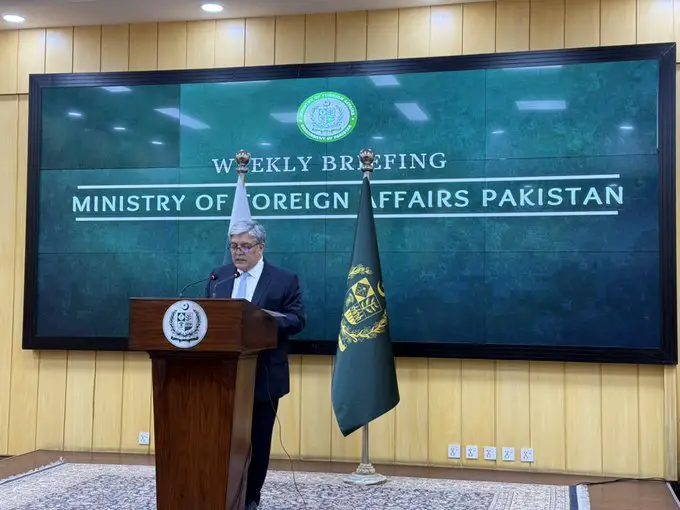ISLAMABAD: Pakistan on Friday strongly condemned Indian Prime Minister Narendra Modi’s recent remarks threatening military and economic action, warning that such escalatory rhetoric and belligerent posturing only serve to heighten regional tensions.Pakistan Condemns Indian PM Modi’s Threats, Warns of Rising Regional Tension
In a press briefing, Foreign Office spokesperson Shafqat Ali Khan urged India to act responsibly, stating that inflammatory statements made by its leadership were “aimed at stoking regional tensions for narrow political gains.” Khan stressed that the global community must take note of India’s increasingly aggressive posture.
The sharp rebuke followed Modi’s declaration that Pakistan “will have to pay a heavy price” for terrorist attacks, and his assertion that Pakistan would no longer receive water from rivers governed by the Indus Waters Treaty (IWT). His comments came a month after a deadly attack in Indian Illegally Occupied Jammu and Kashmir (IIOJK), which New Delhi blamed on Islamabad without presenting evidence. The incident prompted India to suspend the IWT and launch missile strikes on Pakistani cities, sparking the worst military clashes in nearly three decades until a ceasefire was reached on May 10.
Pakistan’s Foreign Office categorically rejected what it called “baseless, provocative, and irresponsible allegations” made by the Indian premier during a rally in Rajasthan. The statement denounced Modi’s remarks as “distortions, misrepresentations, and inflammatory rhetoric” that violate the norms of responsible state behavior and international law.
The Indus Waters Treaty, brokered by the World Bank in 1960, is vital to Pakistan’s agriculture, supplying water to 80% of its farmland. Despite its suspension, Pakistan’s finance minister recently downplayed the treaty’s immediate impact.
The Foreign Office warned that threats and military boasts against a sovereign state constitute a breach of the UN Charter and undermine regional peace and stability. “Pakistan urges the Indian leadership to exercise responsibility,” it concluded.














